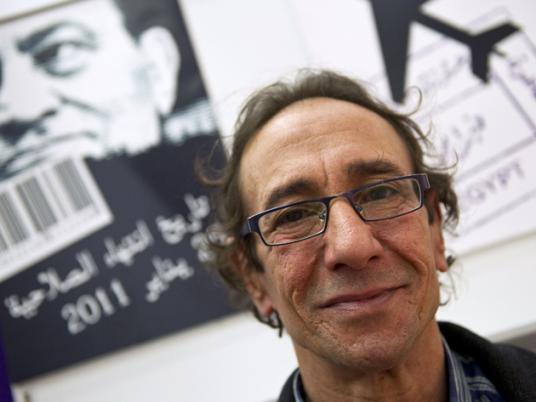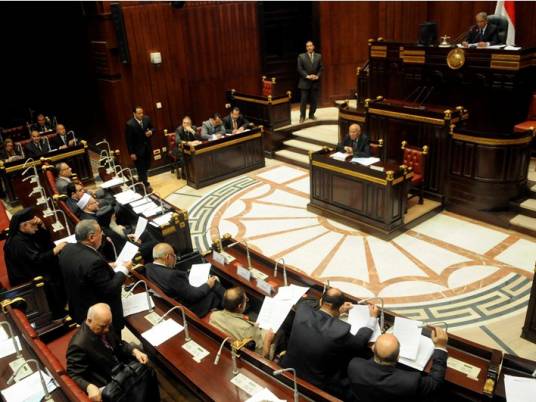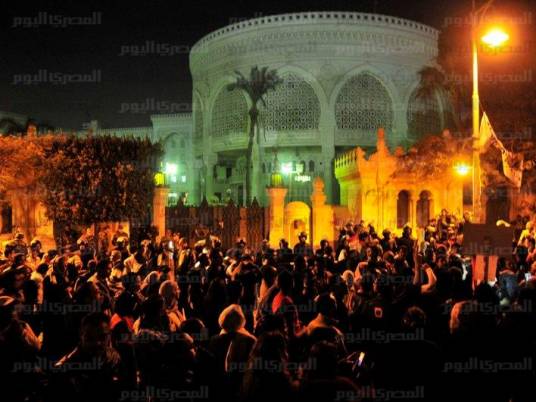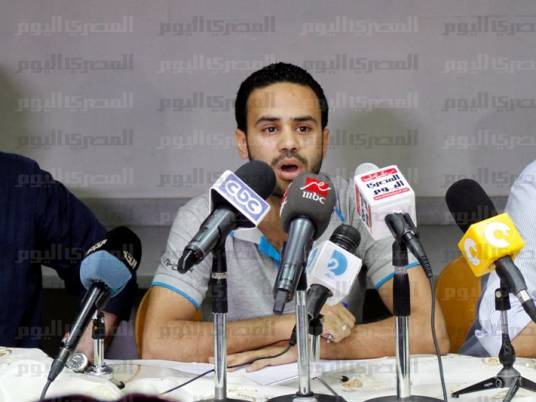On 1 July, Egypt’s military rulers have promised to “hand over” power in a grand ceremony to be broadcast across the world.
But the real show has been happening over the last 16 months as they have cleverly managed to keep the facade of a “transition process” alive despite their crackdowns, unilateral law-making and ever tightening grip on the country.
Every step along this never-ending transition, Egyptians have felt robbed. They were given the right to choose, only to have that choice exploited, manipulated and, ultimately, ignored.
Last March, Egyptians voted in what was considered the first free poll in over half a century. The majority endorsed a nine article mini-constitution that put the country on a fast track to parliamentary elections.
One month later the ruling Supreme Council of the Armed Forces unilaterally issued a 62 article “Constitutional Declaration” essentially using the referendum to legitimize and legalize a document that gave them ultimate authority. The nine articles people voted for aren’t even written in the same form in the declaration.
In November, Egyptians went to the polls again. Millions braved the wind and rain to elect a new Parliament.
Then, in a sudden decision by the country’s Supreme Constitutional Court (headed by a Mubarak appointee) the Islamist-dominated Parliament was dissolved. In one swoop the court declared void the only elected body in the country.
In May, Egypt had its first truly competitive presidential elections.
As soon as the polling stations closed, the SCAF issued amendments to their “Constitutional Declaration” outlining the powers of the newly elected president, stripping him of his commander-in-chief role and any oversight over the army. The amendments have been described by rights groups as a “military coup” but I prefer a term used by legal expert Nathan Brown, a “constitutionalization of a military coup.”
The day Hosni Mubarak stepped down and the military took over was perceived as the start of a transition to democracy. In fact, it was the beginning of a military takeover, which is now in it’s final stage of consolidation.
Hundreds died in order to get rid of Mubarak’s dictatorship, dozens more since then have died trying to save the country from what they see as the rise of a military dictatorship.
The electoral process went from being a moment of achievement to what is increasingly being seen by those same excited voters as an embarrassing sham. Gone are the blue ink-stained fingers waving proudly at the cameras — the realization that Egypt’s future is not being determined at the ballot box is setting in, and the people you would expect to fight it are exhausted and fresh out of ideas.
Most media talk of a “transition process” as if it were an unstoppable train, forgetting events along the way that has rendered the term meaningless, bankrupt and dangerous. The elections were meant to be proof of a transition to democracy, but there were elections under Mubarak; what’s the difference if you rig them during the count or enact laws later that effectively annul what the people chose?
From the moment the SCAF turned nine articles into a document that entrenched their dominance over the political system, it was clear democracy was not the path Egypt was headed toward.
Enter the Brotherhood
Of course it takes two to mess a transition up this badly. The Muslim Brotherhood’s insistence on pushing for elections to capitalize on pro-revolution fervor and the disorganization of liberal and secular parties took the country full circle, leading to power battle between the Brotherhood and the regime. A struggle is taking place with no set parameters, no permanent constitution, just the rules made up by the unelected military rulers.
Many blame the Brotherhood for their failure to achieve anything substantial in the past few months despite their dominant role in Parliament. But their power to legislate was greatly curbed, and had to always be sanctioned by the junta. A defining moment for the People’s Assembly was when they passed the so called “Political Isolation Law” to ban former senior members of Mubarak’s regime from running for the presidency.
The law was passed only days away from the presidential election’s first round. The law, although ratified by the SCAF, was deemed unconstitutional by the Supreme Constitutional Court (on the same day it effectively disbanded Parliament), thus securing the place of presidential candidate Ahmed Shafiq (Mubarak’s last prime minister) in the election runoff.
The Parliament’s other important task was to pick the 100-member Constituent Assembly to draft a new constitution. On 10 April, Cairo’s Administrative Court suspended the assembly because it was dominated by Islamists and was not representative of other groups. The Brotherhood did in fact dominate the assembly — not only through allocating themselves 38 out of the 50 seats reserved for parliamentarians, but also through ensuring those reserved for unions and syndicate representatives were, let’s say, “Brotherhood friendly.”
The result was a mass walk out by seculars, liberals, the Church, Al-Azhar and others. The second attempt at forming a Constituent Assembly is quickly going down the same path, which could lead to the SCAF taking over the entire process of constitution writing. Every time the Brotherhood makes a wrong move, the SCAF is the sole beneficiary.
In the end, the revolution’s greatest asset became the biggest hindrance to its success — lack of leadership. Into the brief power vacuum left behind by Hosni Mubarak, leapt a military elite that quickly proved how easy it is to turn a spontaneous uprising into a coup.
Sherine Tadros is the Al Jazeera English Cairo correspondent




